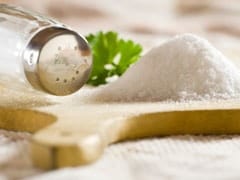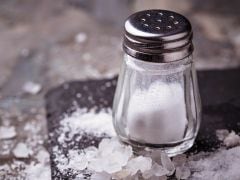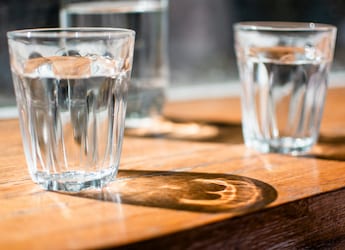


Food is a tempting thing but excessive salt makes it harmful. Salt also overpowers the taste of other masalas that we have added and also the fragrance.

A recent study, published in the journal Cardiovascular Research, found, "a high-salt diet increased the levels of a stress hormone by 75 percent."

Chef Pankaj Bhadouria, through a video on Instagram, shared certain useful hacks to balance the salt in a dish.

Food Safety and Standards Authority of Indian (FSSAI) has suggested ways to reduce salt-consumption with some easy tips and tricks.

Ever noticed how some people have the tendency to sprinkle a little extra salt on their plate of food? It has been suggested that this is not a healthy practice and may harm your health ...

According to a study published in the journal Clinical Investigation, salty foods tend to diminish thirst and increase hunger instead, due to a higher need for energy.

A new study, conducted by the Researchers from Cincinnati Children's Hospital, warns that high consumption of salt as part of a teenager's diet can put him at an increased risk of cardiovascular disease, heart attack ...

Sodium chloride in salt may raise blood pressure, which can also lead to heart ailments. It has been claimed for the first time that excessive salt intake may also significantly weaken immune system.

The study of more than 2,15,000 people found that each additional gram of sodium excreted in urine over 24 hours was associated with 11 per cent higher odds of an eczema diagnosis.

With so many types of water aroundplain, salt, electrolyte or detoxchoosing the best for your body can be confusing. Learn which water keeps you hydrated, supports energy, digestion and brain function, and when to drink ...